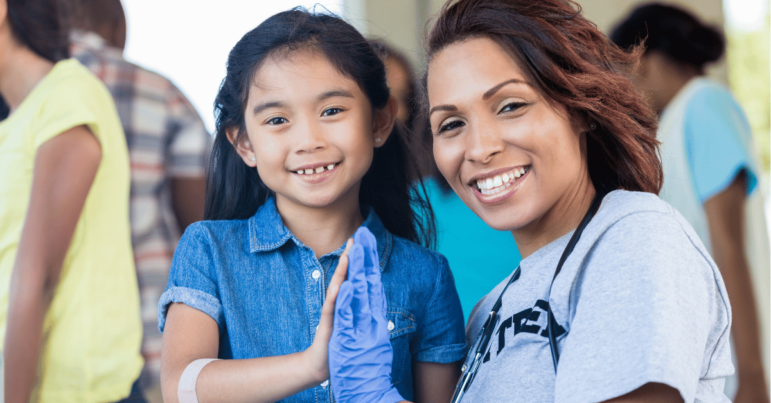We expect hospitals to give back generously to communities to justify their tax breaks, but what they spend on is just as important as how much they spend. Where can hospitals invest to have the largest impact on community health? Here are some real-world examples from high-performing hospitals in our latest report, Making hospital tax breaks work for communities. The following descriptions were taken from hospitals’ IRS Form 990 Schedule H narrative report and edited for clarity.
Grady Memorial Hospital serves patients’ social needs
Grady Memorial Hospital in Atlanta, GA, launched a program in 2019 to screen patients for social needs, including food, transportation, financial, and/or housing insecurity. By the end of 2022, the hospital had screened nearly 40,000 patients. Grady developed a multi-pronged approach to linking patients with identified health-related social needs in the social needs screening to resources in the community. Through both direct patient support and social need referrals, nearly 3,000 patients have been referred for services. The hospital distributed more than 1,000 farmer market vouchers, and helped over 100 patients stay in their homes with rental support and case management.
Mount Sinai launches community-based action to contain COVID-19
From 2020-2022, Mount Sinai Hospital in Chicago, IL, worked with a variety of partners, conveners, elected officials, schools, and churches in service areas to disseminate protective equipment and other resources related to COVID-19. Additionally, Sinai developed a communication strategy to reach out directly to partners, patients, clients and community members through printed flyers, emails, social media, radio and tv interviews, and phone calls to provide information related to the pandemic and how to prevent contagion. A COVID-19 hotline with bilingual services and a website were created to assess this need.
Sinai Community Institute canvased neighborhoods on the Greater West Side of Chicago to provide COVID-19 updates, surveys, and vaccine education to assist residents in scheduling a COVID-19 vaccine. They performed COVID-19 education and assisted with vaccine scheduling via phone banking, town hall meetings, popup vaccine clinics, and local events. The community relations department organized or coordinated the participation of Sinai’s specialists in dozens of virtual events that addressed covid-19 prevention, pediatric vaccination, mental health, diabetes, kidney failure, access to healthcare, expansion of healthcare insurance for immigrants, resources for caregivers taking care of seniors, and other topics.
Boston Medical Center addresses disparities in pediatric health
Boston Medical Center’s Grow Clinic provides comprehensive nutritional, social services, and developmental support to children from the Greater Boston Area diagnosed with failure to thrive. The Grow Clinic provides medical treatment, nutritional assessment, home health education, social service advocacy, and developmental referrals. Additionally, patients and families receive access to BMC’s therapeutic food pantry, nutritional supplements, children’s clothes, diapers, books and educational toys, among other services.
Approximately 200 families are treated annually at the clinic. In 2022, there were 1,054 total clinic visits and 238 home visits. Additionally, BMC’s Center for the Urban Child and Healthy Family pilots innovative models of pediatric care, including support for families through addiction recovery and providing mental health care access to caregivers within primary care pediatrics.
MLK Community Hospital improves access to care for all
MLK Community Hospital in Los Angeles, CA, has outlined a number of programs and strategies to increase access to preventive, primary, specialty, and dental health care for medically underserved populations. Such programs include: helping residents establish medical homes and connect to primary and specialty providers; providing transportation assistance, telehealth, and mobile health options; providing access to prenatal and postnatal services and support for expectant mothers in the community; helping residents enroll in governmental health insurance or social service programs or access financial assistance.
Additionally, MLK Community Hospital has developed programs to address the needs of residents experiencing homelessness, including high quality street-based medical services, case management, access to housing and other social supports, and developing increased numbers of reserved shelter beds to improve recuperative care.
